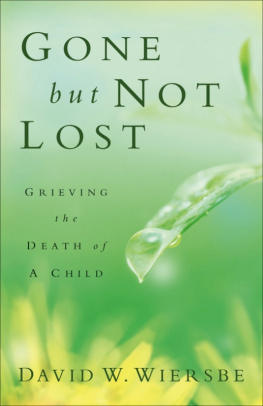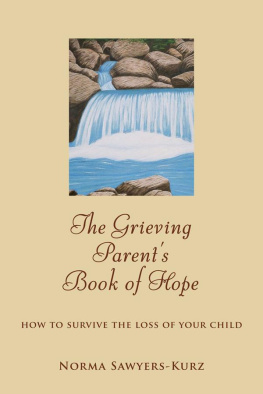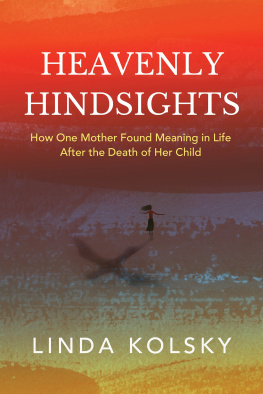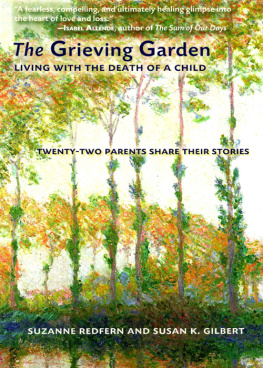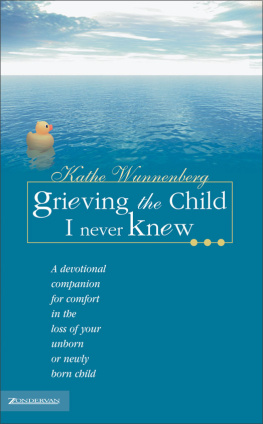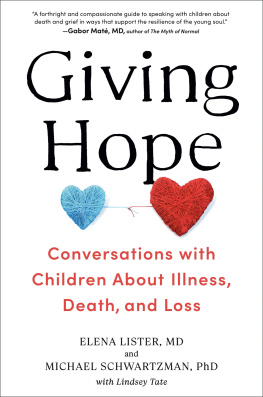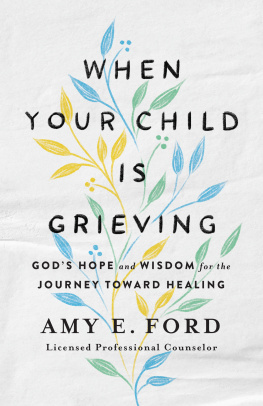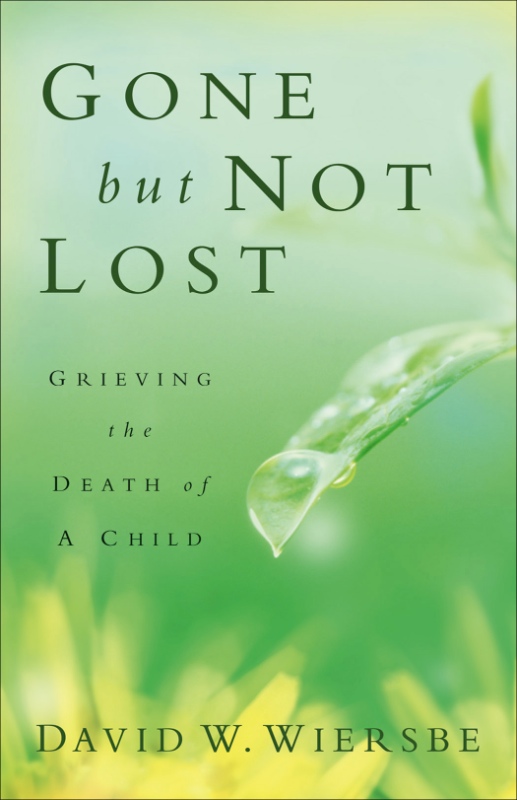1992, 2011 by David W. Wiersbe
Published by Baker Books
a division of Baker Publishing Group
P.O. Box 6287, Grand Rapids, MI 49516-6287
www.bakerbooks.com
E-book edition created 2011
All rights reserved. No part of this publication may be reproduced, stored in a retrieval system, or transmitted in any form or by any meansfor example, electronic, photocopy, recordingwithout the prior written permission of the publisher. The only exception is brief quotations in printed reviews.
ISBN 978-1-4412-1461-4
Library of Congress Cataloging-in-Publication Data is on file at the Library of Congress, Washington, DC.
Scripture is taken from the Holy Bible, New International Version, NIV. Copyright 1973, 1978, 1984 by Biblica, Inc. Used by permission of Zondervan. All rights reserved worldwide. www.zondervan.com
To
Mike and Pat Mulvain
and
Steve and Carolyn Scherrer,
who became my teachers as
they walked through the valley
of the shadow of death,
and whose lives today
continue to demonstrate that
God does give
beauty instead of ashes, and
the oil of gladness
instead of mourning.
Preface
I am grateful to the good people at Baker Books for the opportunity to improve on the first edition of this book. Eighteen years is a long time for a book to survive, and Im glad that Gone but Not Lost is getting new life.
Past readers have asked how I came to write this book. For several years, I attended meetings of The Compassionate Friends and Survivors of Suicide with my friends, Mike and Pat Mulvain. This was my apprenticeship in helping those who mourn. Eventually, the church I pastored began a bereaved parents support group, and I became the facilitator. Each month I listened to the experiences of our group members. Over time common themes, complaints, insights, and questions emerged. Those whose grief was fresh complained about the lack of a concise written resource that focused on the basics. What I learned from my sisters and brothers in that group became the core of this book.
This book is intended for the newly bereaved parent. Use it as a compass on your journey through sorrow. Look at it as an emergency kit for those moments you encounter a crisis. Grief interferes with our ability to concentrate, so the chapters are focused and brief. This is not an in-depth study on the stages and specifics of grief; rather, it is a starting-point and a locator as you move through your grief.
Death breaks relationships. Part of the pain of grief is having love to give but no loved one to receive it. The Christians assurance and hope are that those who die in Christ are alive with him, and there is a day of glorious reunion coming.
A pastor said in a funeral message, Our brother is gone from us, but he is not lost. When you know where someone is, he isnt lost. He is in heaven with Jesus. So he is gone from us, but he isnt lost! This is the truth that sustains Christian people in their sorrow.
Butparents must still learn to live with grief and cope with marriage, family, work, and the rest of life. My hope is that this book will help you to understand what you are experiencing and provide encouragement and hope. Because of his death and resurrection, Jesus Christ is our greatest source of information and comfort.
I write as a believer in Jesus Christ and in the truth of Gods Word; I write as a caregiver who wants to bring healing to the wounded; and I write as a pastor who has walked with members of his flock through the valley of the shadow of death. Jesus always welcomed children to be with him. I believe that when a young child dies, he or she enters the presence of the Lord.
May the God of all comfort be your strength in sorrow.

Bereaved parent . That is a designation applied to you since your child died. You didnt choose it, and it is probably hard to accept that bereaved parent means you. Your childs death has changed your identity.
As a bereaved parent you have walked through these experiences:
| being with your child at the time of death, or being notified of your childs death; |
| feeling numb and shedding tears; |
| talking with medical personnel; |
| making funeral arrangements (decisions you never expected to make); |
| being surrounded by guests at the visitation, listening to so many words; |
| sitting through the funeral, thinking this isnt real; |
| wondering when youll wake up and this nightmare will be over; |
| asking questions that have no answers; |
| feeling a constant, inner pain; |
| sensing that everyones life is normal, except yours. |
No one tells us how much death hurts. There is a physical pain to it, beyond description. Some parents have called it the stomachache that never ends. There is a sense of dislocationof being on the outside, watching events unfold. There is also the constant inner awareness that This really is happening to me, right now.
It is not the normal course of things for a child to die before his or her parents. We expect our parents will die first, and then it will be our turn. No parent expects to make his or her childs funeral arrangements or witness the funeral.
Children die in so many ways: miscarriage, stillbirth, SIDS (Sudden Infant Death Syndrome), disease, accident, lingering illness, suicide, murder, or drug overdose. A child can die at any age. It is always tragic when a child dies. The death of a fifty-year-old son may hurt an eighty-year-old mother as deeply as a mother whose six year old dies.

